Granite countertops have become a hallmark of quality and sophistication in modern kitchens and bathrooms. The allure of granite lies not only in its timeless aesthetic but also in its exceptional durability and versatility. As we explore the realm of granite countertop quality, it’s crucial to understand the various factors that contribute to making these surfaces a popular choice for homeowners and designers alike.
At the core of granite’s appeal is its natural origin. Formed deep within the Earth’s crust through the cooling and solidification of molten magma, granite is an igneous rock that boasts unique patterns and mineral compositions. This natural diversity means that no two granite countertops are identical, adding a touch of individuality to each installation.
The density and hardness of granite are key indicators of its quality. High-quality granite is known for its durability and resistance to scratches, heat, and chipping. This robust nature makes it an ideal choice for kitchen countertops, where daily activities can subject surfaces to considerable wear and tear. Homeowners can rest assured that a well-maintained granite countertop will stand the test of time.
Granite countertops are available in a spectrum of colors and patterns, allowing for seamless integration into various design schemes. The quality of the stone’s polish is a crucial aspect of its visual appeal. A high-quality granite countertop exhibits a smooth, reflective surface, enhancing the stone’s natural beauty. The polishing process not only contributes to aesthetics but also aids in creating a more hygienic and easier-to-clean surface.
The sourcing of granite plays a pivotal role in determining its quality. Reputable suppliers adhere to ethical and sustainable practices, ensuring that the granite is extracted responsibly without causing harm to the environment or exploiting labor. Conscious consumers often seek certifications or information regarding the quarrying practices when investing in granite countertops to align with their values.
Seamlessness in granite countertop installations is a hallmark of quality craftsmanship. Expert fabricators take great care to minimize seams, creating a visually cohesive surface that enhances the overall aesthetic. Properly installed granite countertops showcase the stone’s natural patterns with minimal interruption, providing a stunning and cohesive appearance.
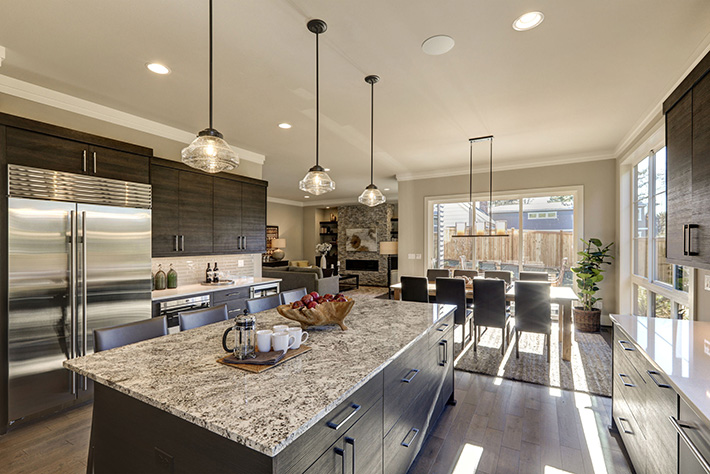
The finish of a granite countertop contributes significantly to its overall quality. Common finishes include polished, honed, and leathered. A polished finish, characterized by a glossy surface, is a popular choice for its ability to showcase the stone’s depth and color. Honed finishes offer a matte appearance, providing a more subtle and understated look. Leathered finishes, on the other hand, offer a textured surface, adding a tactile dimension to the countertop.
Granite countertops are not immune to the passage of time, and their quality is often determined by how well they age. With proper care and maintenance, high-quality granite countertops will retain their luster and functionality for decades. Regular sealing, cleaning, and avoiding harsh chemicals are essential practices to ensure the longevity of the stone and preserve its inherent qualities.
The thickness of a granite countertop is a practical consideration that influences both its appearance and performance. Thicker slabs not only convey a sense of luxury and substance but also provide added strength and durability. Homeowners often have the flexibility to choose the thickness that aligns with their aesthetic preferences and functional needs.
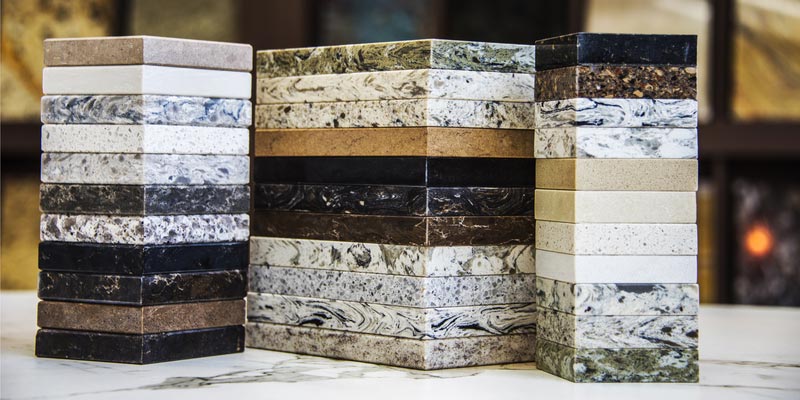
The origin of the granite can impact its quality and characteristics. Different quarries yield stones with varying mineral compositions, colors, and patterns. Some homeowners may prefer granite from specific regions known for producing unique and visually striking varieties. Understanding the geological origin of the granite allows consumers to make informed decisions based on their preferences and desired aesthetic outcomes.
Edge profiles contribute to the visual impact of a granite countertop. High-quality granite installations often feature custom edge profiles that add a touch of sophistication and uniqueness. Beveled edges, bullnose edges, and ogee edges are among the many options available, allowing homeowners to personalize their countertops to suit their design preferences.
Granite countertops, when properly sealed, exhibit water-resistant properties. The quality of the sealing process is crucial in preventing the absorption of liquids that could lead to staining or damage. High-quality granite countertops are sealed effectively during the fabrication process, providing a protective barrier that enhances the stone’s longevity and maintains its pristine appearance.
The installation process is a critical phase in ensuring the quality of granite countertops. Skilled professionals take precise measurements, address any irregularities in the cabinets or walls, and meticulously install the slabs to create a seamless and secure fit. Proper installation not only enhances the visual appeal but also contributes to the overall functionality and durability of the countertops.
Granite countertops are not solely reserved for kitchens; they have found a place in bathrooms as well. The quality of granite extends its suitability to various spaces, offering a luxurious and durable surface that withstands the unique challenges posed by bathroom environments. When considering granite for bathrooms, factors such as color, pattern, and finish become essential elements in creating a harmonious and inviting space.
The pricing of granite countertops is often associated with its quality. While granite is considered a premium material, variations in quality can influence the overall cost. Factors such as rarity, thickness, and origin contribute to the pricing structure. Investing in high-quality granite may incur a higher initial cost, but the long-term benefits in terms of durability and aesthetics make it a worthwhile expenditure for discerning homeowners.
The quality of granite countertops encompasses a multifaceted spectrum of characteristics, ranging from its geological origins to the intricacies of fabrication and installation. As a symbol of enduring elegance and resilience, granite countertops continue to be a sought-after choice for those who value not only the aesthetics of their living spaces but also the longevity and quality of the materials that define them.
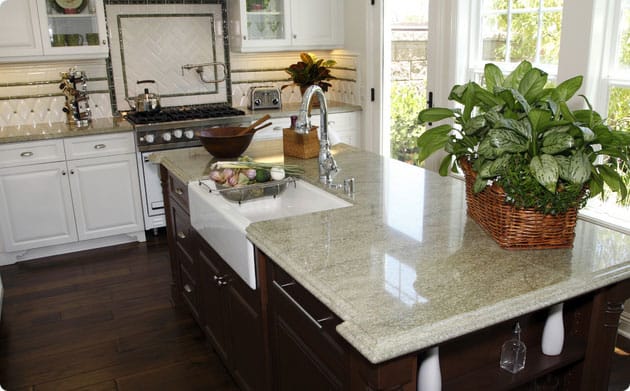
Best Ways to Check Granite Quality Granite Selection
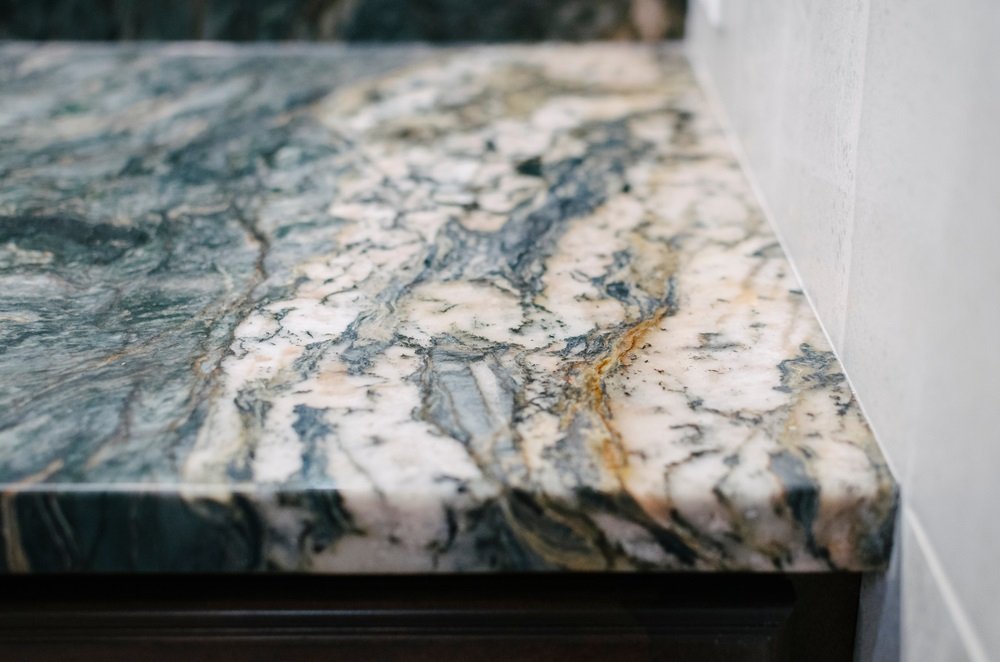
Granite Grades Granite Grade Quality Quality Granite
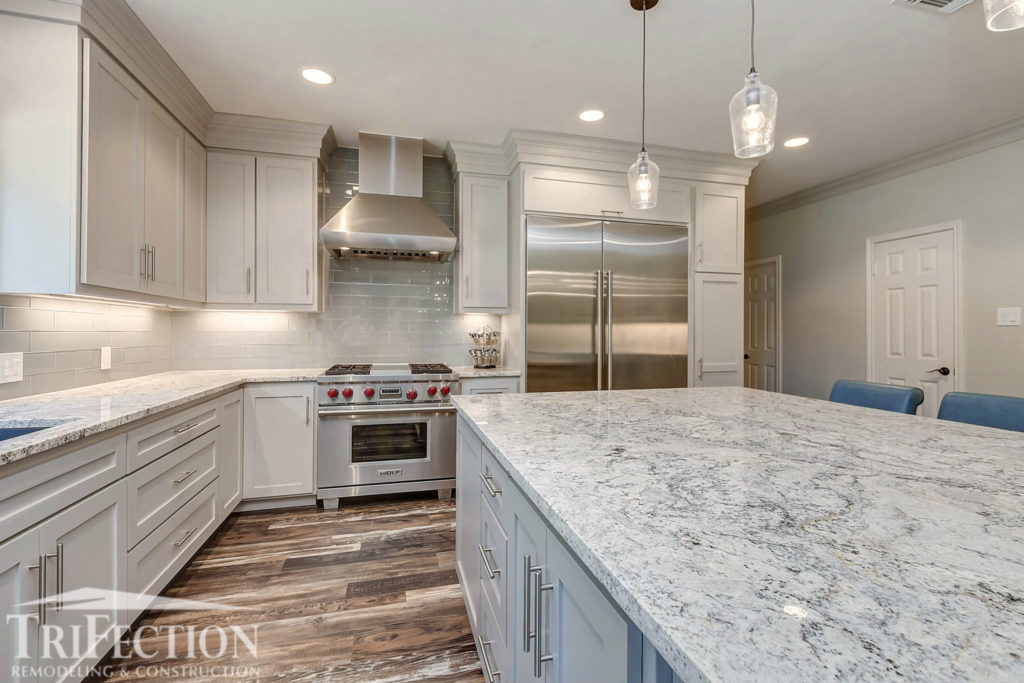
Granite Colors Can Affect Countertop Quality Granite Countertop Info
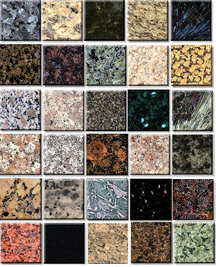
Quality and Grade of Granite American Wood Reface
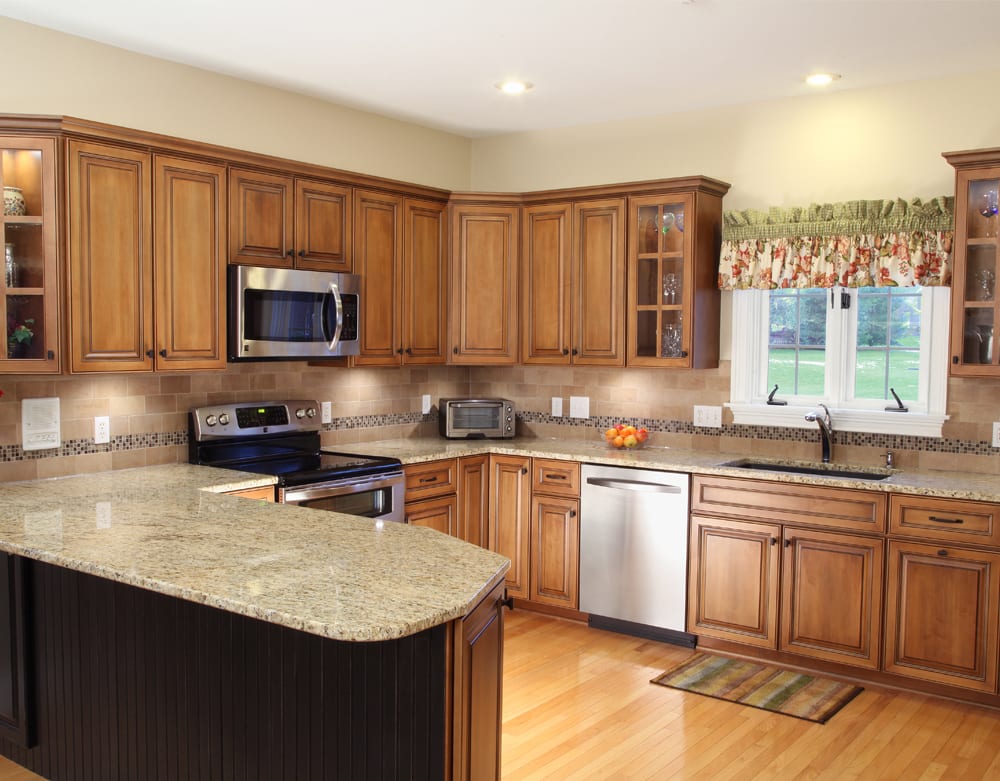
Related articles:
- Granite Countertop Overlay
- Stains On Granite Countertops
- Black Pearl Granite Countertops
- Black Matte Granite Countertop
- Black Granite Kitchen Countertops
- Cutting Granite Countertops DIY
- Gray Granite Countertops
- Blue Gray Granite Countertops
- Granite Countertops Wood Island
- Backsplash Ideas For Granite Countertops